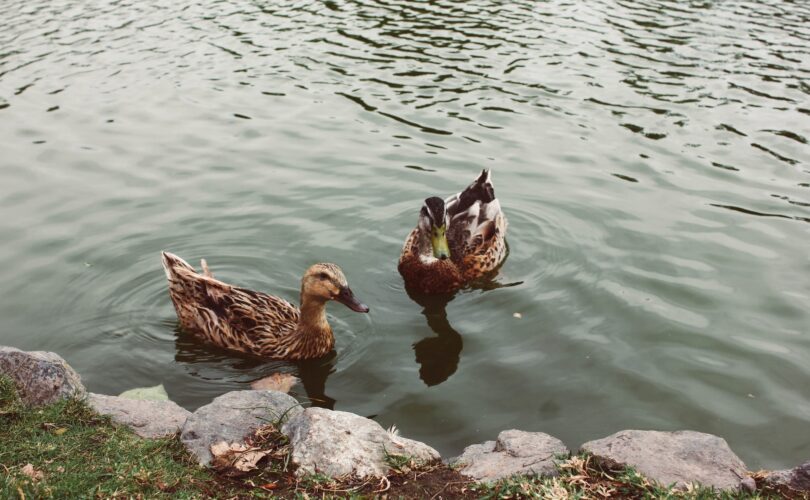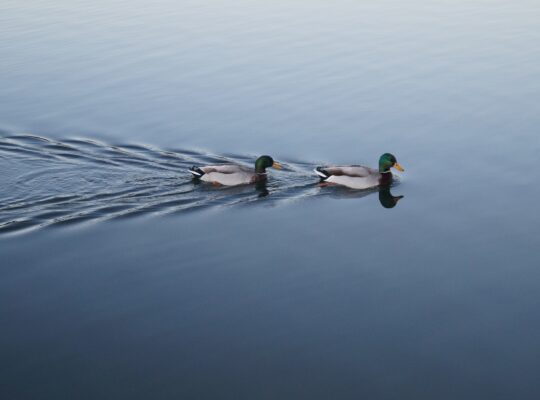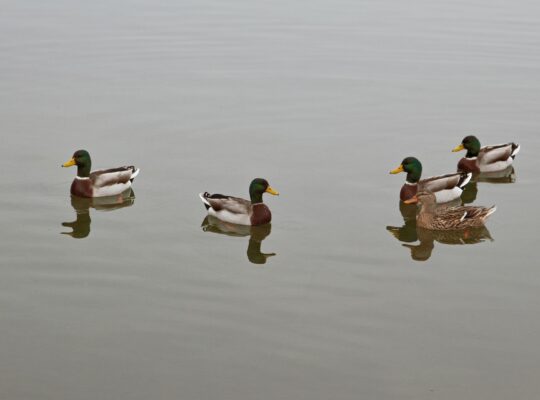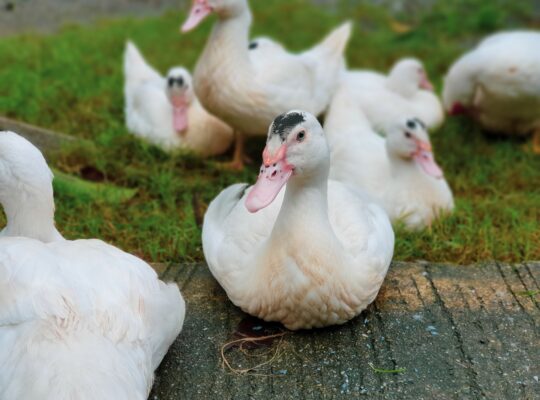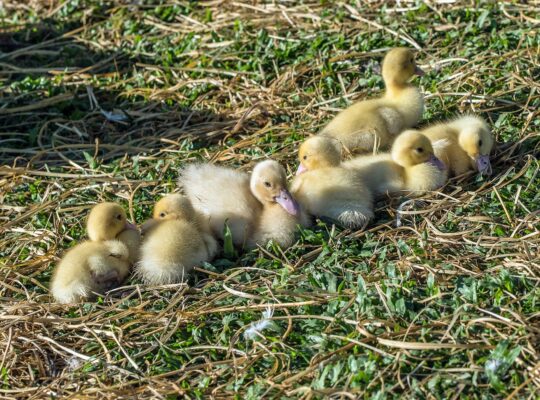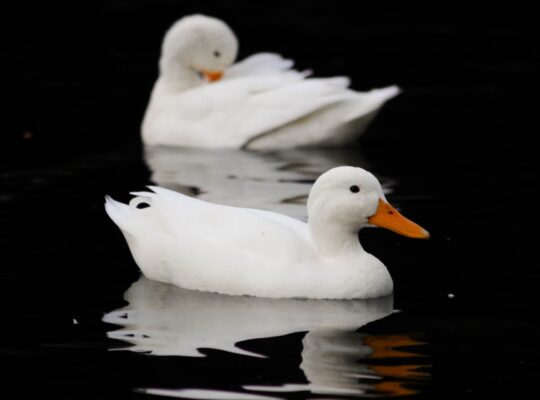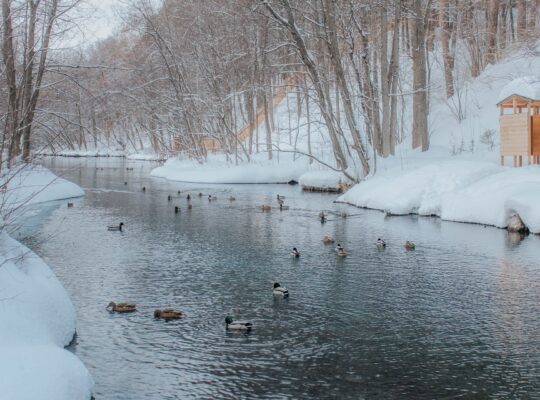Feeding ducks is common in parks and ponds, but you must be careful what you give them. Bread and other human goods may seem to be a delight for ducks, but they may be hazardous to their health and the ecosystem.
Bread is a frequent snack that people feed ducks. However, they need a healthier diet for them. Bread lacks the nutrients that ducks need to keep healthy, and eating too much bread may result in “angel wing,” a disease in which the wings grow distorted and can no longer fly. Moreover, uneaten bread may contaminate the water and cause dangerous algal blooms that are poisonous to aquatic life.
Some human foods, such as chips, crackers, and popcorn, are unsuitable for ducks. These meals contain a lot of salt, which may cause dehydration and other health problems. Similarly, sugary or sweet meals may induce digestive issues and lead to weight.
It is recommended to feed ducks natural foods that are suited to their diet. Seeds, cereals, and vegetables like lettuce, peas, and maize are all acceptable choices. Nevertheless, feeding them in moderation and preventing overfeeding is important since this may develop into dependence and upset their normal feeding patterns.
To summarize, although feeding ducks may seem a harmless hobby, it is important to be cautious of what you give them. Bread and other human meals may harm their health and the environment, so stick to natural foods in moderation. You can keep ducks healthy and preserve a healthy environment in your Local Park or pond.
What fruits can ducks not eat?
Ducks are omnivores, meaning they can consume various foods, including fruits. However, ducks should avoid certain fruits since they might be damaging to their health. Ducks should avoid the following fruits:
1. Avocado contains a poison called persin, which may be lethal to birds if consumed sufficiently.
2. Rhubarb leaves contain oxalic acid, which may damage the kidneys and create other health problems.
3. Citrus fruits, such as oranges and lemons, may cause stomach difficulties in ducks and irritate their skin.
4. Stone fruits, such as cherries, peaches, and plums, have pits that may cause choking in ducks.
5. Grapes and raisins may induce renal failure in dogs, and there is some indication that they may have a similar impact on birds.
Although certain fruits should be avoided, ducks may eat and enjoy many others. Berries, melons, and apples are all terrific choices. Fruits should be offered in moderation since too much might create stomach difficulties and disturb their normal eating patterns.
Although ducks may consume a wide range of foods, there are several fruits they should avoid. Avocado, rhubarb, citrus fruits, stone fruits, grapes, and raisins may all damage their health, so stick to healthy and suited for their diet. You can help keep ducks healthy and happy by giving them the correct nutrients.
What can you feed wild ducks?
Feeding wild ducks may be pleasant, but you must be careful what you feed ducks to maintain their health and safety. These are some safe and acceptable feeds for wild ducks:
1. Grains and seeds: Wild ducks consume a wide range of seeds and grains, including cracked corn, oats, wheat, and barley. They are available at feed shops and pet supply stores.
2. Ducks also appreciate veggies, including lettuce, spinach, peas, and maize. They may be given fresh or frozen but should be cut into little pieces to make them simpler for the ducks to consume.
3. Ducks are known to devour insects and worms, so if you have a garden or compost pile, you may gather them for the ducks to eat.
4. Pellets: Specially made pellets for wild ducks and waterfowl are also available. They are available at pet supply shops or online.
It is critical to avoid feeding wild ducks bread or other human foods since they may be hazardous to their health and the ecosystem. Bread lacks the nutrients that ducks need to thrive, and eating too much bread may lead to health issues and water pollution.
Feeding ducks in moderation and avoiding overfeeding is also vital since this may develop into reliance and disturb their normal feeding patterns.
Wild ducks may be given a range of meals such as seeds and grains, vegetables, insects and worms, and specially prepared pellets. To guarantee their health and safety, it is important to avoid giving them bread or other human foods and to feed them in moderation. You can help keep wild ducks healthy and preserve a healthy environment in your Local Park or pond by giving them the correct meals.
What vegetables can ducks eat?
Here are some vegetables that ducks can eat
1. Ducks eat seeds and grains naturally, so supplementing them with these items is smart. You may give them broken corn, millet, or other non-toxic birdseed mixtures.
2. Vegetables: Ducks like lettuce, peas, and maize, as well as other vegetables. They may be broken up and put on the ground so they can discover them.
3. Insects and invertebrates: Ducks consume insects and invertebrates like worms, snails, and slugs. You may provide these by leaving a small mound of compost or dead leaves.
4. Fruits: Although certain fruits, such as citrus and avocado, are not suitable for ducks, others, like berries and apples, are. They should be eaten in moderation and chopped into tiny pieces.
It is important to feed wild ducks in moderation and give them a diverse and balanced diet. This may help them stay healthy and improve their natural habitat. You may help ducks grow and enjoy the pleasure of interacting with these intriguing birds by providing them with the correct nutrients.
We must be aware of what not to feed ducks. Ducks have unique dietary requirements, and feeding them the wrong items may harm their health and the environment. Avoid feeding ducks human things like bread and instead concentrate on giving them a broad and balanced diet that includes suitable items like seeds, grains, veggies, and insects.
Particular fruits to avoid include avocado, rhubarb, and citrus fruits, while berries and apples are acceptable selections. Ducks can consume lettuce, peas, and maize, among other vegetables. We can help maintain a healthy ecology and keep these wonderful birds healthy and happy by following these instructions and feeding ducks in moderation.

